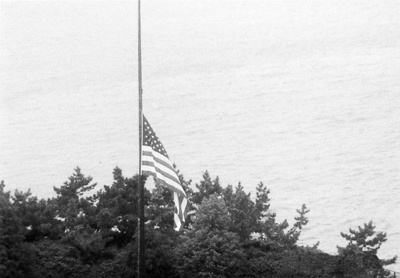All Nonfiction
- Bullying
- Books
- Academic
- Author Interviews
- Celebrity interviews
- College Articles
- College Essays
- Educator of the Year
- Heroes
- Interviews
- Memoir
- Personal Experience
- Sports
- Travel & Culture
All Opinions
- Bullying
- Current Events / Politics
- Discrimination
- Drugs / Alcohol / Smoking
- Entertainment / Celebrities
- Environment
- Love / Relationships
- Movies / Music / TV
- Pop Culture / Trends
- School / College
- Social Issues / Civics
- Spirituality / Religion
- Sports / Hobbies
All Hot Topics
- Bullying
- Community Service
- Environment
- Health
- Letters to the Editor
- Pride & Prejudice
- What Matters
- Back
Summer Guide
- Program Links
- Program Reviews
- Back
College Guide
- College Links
- College Reviews
- College Essays
- College Articles
- Back
Equal Rights & the Separation of Church & State: The Issue of Gay Marriage
Seeing as I’m a second-semester senior, I’m particularly nostalgic and sentimental as of late. Even though the worst of the college process is over for me (can I get a woot-woot?), I often think back to my favorite year of upper school – 10th grade, when high school was all about companionship and fun, untainted by thought about standardized tests or the future. One of my favorite classes of that year was Honors U.S. History.
In Honors U.S., we learned about the principles upon which our country was founded (surprise, surprise). One of these pillars was the separation between the church and the state, strongly mandated by our founding fathers and hallowed in the First Amendment to our Constitution, which states that “Congress shall make no law respecting an establishment of religion, or prohibiting the free exercise thereof.”
Fast forward a few hundred years to the present day, where debates over the legalization of gay marriage burn hot. Social liberals like me demand rights for homosexuals that are equal to those of heterosexuals, whereas social conservatives, many of them religious, obviously do not.
I think that these people need to take another look at the word “marriage.” Merriam-Webster defines “marriage" as “the state of being united to a person of the opposite sex as husband or wife in a consensual and contractual relationship recognized by law.” As demonstrated, “marriage” is denoted in the English language as a legal union between any two people (and connoted with the idea that these two people love each other). So many social conservatives think of marriage in a religious context, where same-sex relationships are forbidden by the Bible or what have you.
Because of said social, religious conservatives, “civil unions” were established in order to afford to same-sex couples the same legal rights conferred to heterosexual couples under marriage. However, the fundamental, philosophical problem with civil unions is that by the nature of civil unions not being called “marriage”, civil unions and marriage are separate and therefore inherently unequal. Civil unions innately submit to the idea that marriage should be reserved only for heterosexual couples, thereby blind to the true definition of the word “marriage.” The more practical reason that civil unions are unequal to marriage (and therefore unjust and futile) is that in many cases, they do not even confer all of the same rights that do marriages.
The fact of the matter is that because of the separation of church and state in the United States and the way that the word “marriage” is defined in the English language, marriage under the state assures legal benefits for the two involved persons. (You can get a religious marriage under the church on your own.) However, the part that disgusts me is that these rights are reserved only for some couples and not others. And here, I must quote the Declaration of Independence (which is already so often done, especially by our overly-nationalistic politicians, but that’s a different article for a different day): “We hold these truths to be self-evident, that all men are created equal, that they are endowed by their Creator with certain unalienable Rights, that among these are…the pursuit of Happiness.”
Notice, first of all, the inclusive and interreligious nature of the word “Creator”, so brilliantly-used by our secularly-minded founding fathers. One can interpret this being as the Christian and Jewish God, some undefinable supreme power, or even the scientific workings of nature. In any case, our Declaration makes it explicitly and indisputably clear that every human being inherently deserves access to the same rights. The desire for both legal rights and for a union that symbolizes mutual love is certainly part of every person’s “pursuit of happiness”, and therefore it should be irrefutably available to every person.
I have already quoted two parts of the two documents essential to our country’s vision and a definition from one of the most acknowledged dictionaries of the English language. Their one similarity? They all support my ideas about the separation of the church and state and the inequality that is still prevalent in American society. It surprises me that social conservatives (some religious), who so often pride themselves on their strict adherence to the words of the Constitution and other such documents, do not agree with my reasoning.
Perhaps part of the reason for this is that the Constitution does not explicitly say anything about marriage. However, given all that the Constitution does say about the separation between the church and state and equal rights, I find the bans on same-sex marriage inscribed in the constitutions of states such as North Carolina to be unethical, undemocratic and illegal under the Constitution of the United States of America.

Similar Articles
JOIN THE DISCUSSION
This article has 0 comments.
